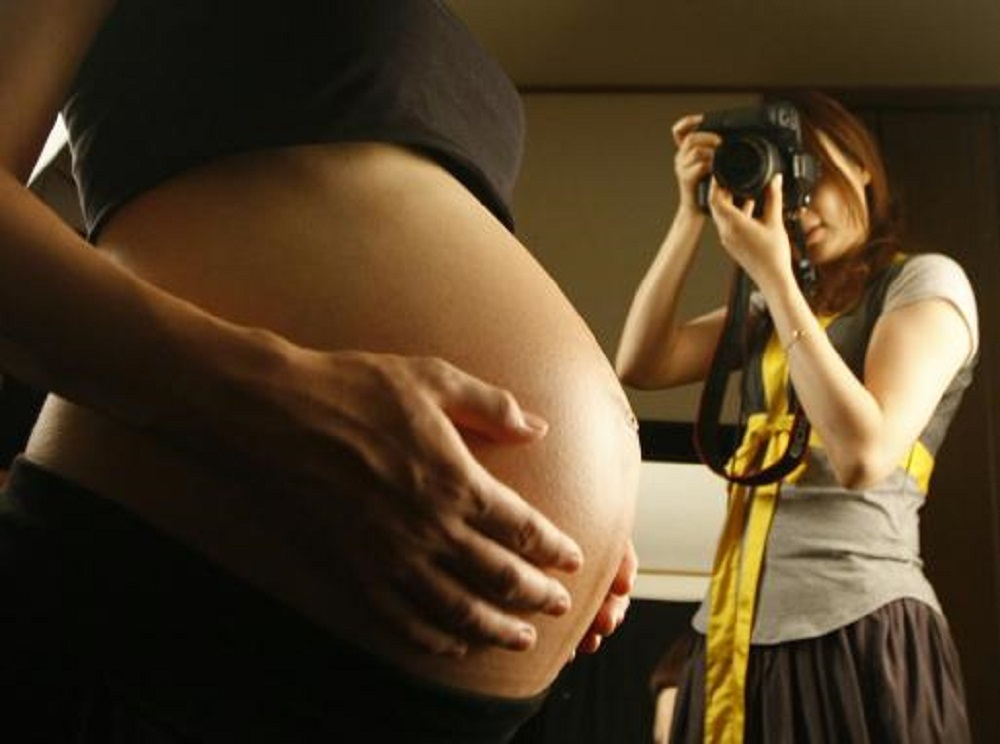Childcare worker in Japan chided for getting pregnant before her 'turn'
Sign up now: Get insights on Asia's fast-moving developments

A pregnant woman at a maternity photo studio "Ixchel" in Tokyo on July 31, 2009. In Japan, childcare centres' practice of dictating when their workers can get married or pregnant is not uncommon.
PHOTO: REUTERS
TOKYO - A woman working at a private childcare centre in Japan was reprimanded by her employer for becoming pregnant before it was her "turn".
The centre, in Aichi Prefecture, apparently has an unspoken rule stipulating when its female employees could get pregnant, the Mainichi Shimbun reported.
This was to ensure that the other employees would not be overburdened with covering for colleagues who went on maternity leave at the same time.
The case came to light after the expecting woman's 28-year-old husband wrote to the Mainichi Shimbun.
He wrote that while they had apologised to the centre director for getting pregnant, his wife was still chided by her boss for "selfishly breaking the rules".
"My wife feels guilty thinking about the hard labour conditions of her colleagues," the husband wrote, according to the Mainichi Shimbun.
"I am fully aware that we are at fault for not planning well. But who benefits from having their 'turn' to have children dictated, and following those rules?" he wrote.
The case has cast a spotlight on the less-than-ideal employment conditions faced by childcare workers in Japan.
They clock long hours - sometimes even having to work on the weekends - and their pay is low. As a result, people shun the industry.
"(The case) happens against a backdrop of people avoiding childcare as a profession, due to its low wages and long hours, and the shortage of staff that results from that," Mr Yuichi Murayama, who heads Hoiku kenkyujo (childcare research institute), told the Mainichi Shimbun.
The average age of a childcare worker in Japan is 35.8, according to 2017 statistics from the Ministry of Health, Labour and Welfare. The worker earns a monthly salary of 229,000 yen (S$2,836) - 104,000 yen (S$1,288) lower than the average monthly wage across all professions, according to the Mainichi Shimbun.
Mr Murayama said that childcare centres' practice of dictating when their workers can get married or pregnant is not uncommon.
It also happens at other workplaces where most of the employees are women, said Ms Toko Shirakawa, a journalist who is well versed in the issue of Japan's declining birthrate.
"Even when pregnancy rules are not strictly enforced, women are inclined to refrain from getting pregnant at the same time as their female colleagues who take maternity or childcare leave, because they don't want to cause trouble to their other colleagues," said Ms Shirakawa, as quoted by the Mainichi Shimbun.


